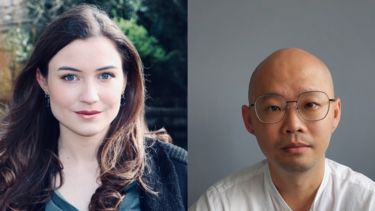Lea Cantor and CM Lim will be joining us in September 2025, so we asked them some questions to get to know them:
What are your key areas of research?
Lea Cantor: My key areas of research are classical Chinese philosophy, especially Daoism; ancient Greek philosophy, especially early Greek philosophy and Hellenistic scepticism; and the global historiography of philosophy. I also have active interests in the European reception of Chinese and Greek philosophy, and in early modern Ethiopian philosophy.
CM Lim: I spend most of my time now examining some issues in political philosophy. One concerns the justifications of, and constraints on, political resistance. Another centres on the nature of, and problems with, our commemorative practices.
Favourite topics to teach?
Lea Cantor: One topic I’ve especially enjoyed teaching is scepticism across the global history of philosophy. I enjoy teaching all areas of ancient Chinese and Greek philosophy. I’m generally committed to developing an inclusive approach to the teaching of ancient philosophy within a global purview.
CM Lim: I generally enjoy teaching topics in political philosophy. One of my favourite courses explores the interface between public policy and political philosophy (though, for various reasons, it is titled ‘Ethics and Public Policy’).
Your publications?
Lea Cantor: Some of my recent work has focused on the historiography of Graeco-Roman philosophy. I’ve argued that fresh critical scrutiny of ancient Greek views on the origins and development of philosophy enables us to rethink and expand the philosophical canon (see my paper on Thales in the historiography of philosophy: BJHP 2022). I’ve also published papers on the classical Chinese text Zhuangzi (see my paper on the ‘Happy Fish’ passage of the Zhuangzi: BJHP 2020); and on the reception of another classical Chinese text, the Laozi (otherwise known as the Daodejing) by the anti-Nazi student resistance movement known as the White Rose (see my paper in Oxford German Studies 2023).
CM Lim: In a few recent papers, I discuss how we can adjudicate the disagreements about controversial monuments (https://onlinelibrary.wiley.com/doi/full/10.1111/papa.12162), differentiate activists from criminals (https://www.jesp.org/index.php/jesp/article/view/1430), and identify the right targets of political resistance (https://journals.publishing.umich.edu/phimp/article/id/717/). My other papers – including earlier work on disability justice – can be found on my website (https://www.cmlim.info).
What drew you to the University of Sheffield?
Lea Cantor: I was particularly drawn to the Sheffield Philosophy Department’s strengths in the history of philosophy, metaphilosophy, social epistemology, critical philosophy of race and gender, ethics, and political philosophy. The Department’s aims to expand the philosophical canon, and to make philosophy globally inclusive within and beyond academia, resonate both professionally and personally. Last but not least, it’s also one of the friendliest academic communities I’ve encountered!
CM Lim: I’m especially drawn to the philosophy department’s strength in moral and political philosophy. I’ve also heard from numerous people that it’s one of the most welcoming and friendliest philosophy departments – my experience so far confirms that!
What are your hobbies outside of work?
Lea Cantor: I enjoy travelling, as well as cooking and eating great food. I also play the drums, though it’s been a while since I’ve had regular access to a kit.
CM Lim: I enjoy long walks, hunting for good food, and above all playing with my dog and three cats.
How did you become a philosopher?
Lea Cantor: My mother says that around the age of five I became preoccupied with the thought of death, maybe that was an early indication of some sort. A wonderful teacher at the Lycée Français Jean Monnet in Brussels inspired me to pursue philosophy at University. I still think of myself as a student of philosophy, including when I teach.
CM Lim: My interest in philosophy aside, I’ve become a philosopher through a combination of luck and the incredible support I’ve received from my advisers and peers in the academic community.

